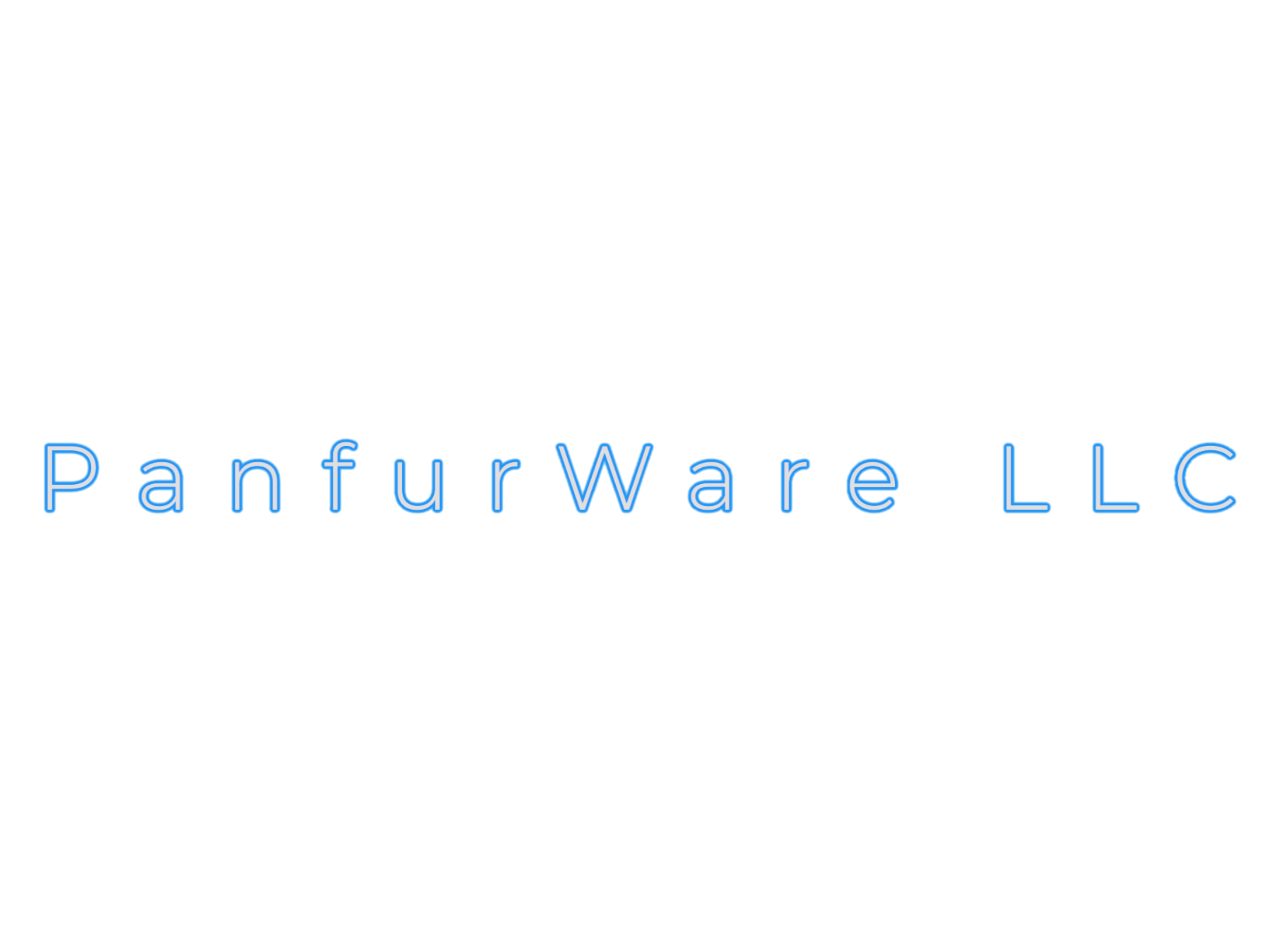Free shipping over $50 for the month of April using code aprilship
In the digital age, email remains a vital communication tool, bridging personal and professional worlds. Whether you run your own business, work in a corporate environment, or simply communicate with friends and family, choosing the right email service is crucial. In this post, we explore the pros and cons of various email options including private server email, work email, personal email, ISP-provided email, and the age-old debate of free versus paid email services. Read on for a comprehensive guide that will help you determine which type of email fits your needs best. And if you enjoy this post, please comment below and share with your network!
The Importance of Choosing the Right Email Service 
Email is more than just a digital messaging tool; it is an essential asset for building professional credibility, maintaining personal relationships, and managing day-to-day operations. The right email service can boost productivity, enhance security, and even strengthen your brand identity. Conversely, the wrong choice can expose you to security vulnerabilities, limit scalability, and tarnish your professional image.
Each email solution has its unique set of strengths and weaknesses. By understanding these nuances, you can make an informed decision that not only meets your communication needs but also aligns with your budget, technical expertise, and long-term goals.
Private Server Email: Ultimate Control or a Technical Headache? 

Pros of Private Server Email
- Complete Control Over Data and Security:
Operating your own private email server gives you full authority over your data. You can implement advanced security measures, set up customized encryption protocols, and manage access controls precisely as per your requirements. This level of control is particularly valuable for businesses that handle sensitive information and require compliance with strict data protection regulations. - Customization and Flexibility:
With a private server, you have the freedom to tailor every aspect of your email system. From interface design to spam filtering and storage management, you can create a system that perfectly aligns with your operational needs. This customization can also extend to integrating additional productivity tools that enhance your workflow. - Enhanced Privacy:
Since you are not relying on third-party service providers, you minimize the risk of your data being shared or accessed by unauthorized entities. This increased privacy is a significant advantage for organizations that prioritize data confidentiality.
Cons of Private Server Email
- High Setup and Maintenance Costs:
Setting up a private server requires a substantial initial investment in hardware, software licenses, and IT expertise. Moreover, ongoing maintenance, including regular updates and security patches, can become expensive over time. - Technical Complexity:
Managing a private server is not for the faint-hearted. It demands a solid understanding of IT infrastructure, network security, and server administration. Without a dedicated IT team, businesses might struggle with technical issues that disrupt email communication. - Scalability Concerns:
As your organization grows, scaling a private server can be challenging. Additional resources, such as increased storage and higher processing power, must be constantly managed and upgraded, which might not be as straightforward as scaling a cloud-based solution.
Work Email Accounts: Professionalism at a Price? 

Pros of Work Email Accounts
- Professional Image and Branding:
Using a work email address (such as name@yourcompany.com) establishes credibility and professionalism. It not only reinforces your brand identity but also builds trust with clients and business partners, which is essential in today’s competitive market. - Integration with Collaboration Tools:
Many work email services come bundled with a suite of productivity tools, including calendars, file sharing, and project management applications. This integration facilitates seamless collaboration and can significantly boost team productivity. - Centralized Management:
Companies can centrally manage work email accounts, making it easier to implement uniform security policies, monitor compliance, and manage user access. This centralized approach is beneficial for large organizations with multiple departments.
Cons of Work Email Accounts
- Limited Personal Use:
Work emails are strictly professional. Personal use is often discouraged, and many companies have policies that restrict non-business communication. This limitation means you might need to maintain separate personal and professional email accounts. - Potential Monitoring and Privacy Issues:
Employers often monitor work email communications to ensure compliance with company policies. While this monitoring is intended to protect the organization, it can be a drawback for employees who value their privacy. - Dependence on Employer:
Your work email account is tied to your job. If you change positions or leave the company, you may lose access to that email, which can be inconvenient if important contacts or communications were associated with that address.
Personal Email Accounts: Convenience and Flexibility with a Few Trade-Offs 

Pros of Personal Email Accounts
- Unrestricted Communication:
Personal email accounts offer the freedom to communicate without the constraints of corporate policies. Whether it’s sharing holiday photos with family or coordinating social events, personal emails are versatile and flexible. - Portability:
Unlike work emails, personal email accounts are independent of any organization. This means you retain your email address even if you change jobs or relocate, ensuring continuity in your personal communications. - Ease of Use:
Personal email providers are designed for simplicity and user-friendliness. With intuitive interfaces and mobile apps, managing your personal email becomes a hassle-free experience.
Cons of Personal Email Accounts
- Perceived Unprofessionalism:
Using a personal email address for professional matters can sometimes appear unprofessional. Clients and business contacts may prefer communications from a dedicated work email address, which can affect your credibility. - Limited Advanced Security Features:
While personal email providers offer basic security measures, they often lack the advanced features found in enterprise-level solutions. This can leave personal accounts more vulnerable to phishing attacks and data breaches. - Potential for Clutter:
Personal email accounts can quickly become cluttered with newsletters, promotional emails, and spam. Without proper management, this can lead to an overwhelming inbox, making it difficult to find important messages.
ISP-Provided Email Accounts: Convenience Meets Limitation 

Pros of ISP-Provided Email Accounts
- Convenience and Accessibility:
Many Internet Service Providers (ISPs) offer free email accounts as part of their subscription packages. This convenience makes it easy to get started with minimal setup required. For users who need a basic email account without the bells and whistles, ISP-provided emails can be a practical solution. - Integrated with Internet Service:
Since the email is tied to your ISP, it can be a seamless part of your overall internet experience. This integration often simplifies the process of setting up and managing your email account.
Cons of ISP-Provided Email Accounts
- Lack of Portability:
One of the major drawbacks of ISP-provided email is that it is linked to your internet service. If you decide to change your ISP, you may lose access to your email account, leading to potential data loss and the inconvenience of transitioning to a new email provider. - Limited Features and Customization:
ISP-provided emails typically come with fewer features compared to dedicated email services. Limited storage, fewer security options, and basic interface designs might not meet the demands of power users or businesses that require advanced functionalities. - Service Quality Variability:
The quality of ISP-provided email services can vary widely depending on the provider. Some may offer robust features, while others might have outdated systems that can affect reliability and user experience.
Free vs. Paid Email Services: Balancing Budget and Benefits 


Free Email Services
Examples: Gmail, Yahoo Mail, Outlook.com
Pros:
- Cost Efficiency:
Free email services are an attractive option for individuals and small businesses on a tight budget. They provide essential email functionalities without any subscription fees, making them accessible to everyone. - User-Friendly Interfaces:
Many free email platforms are designed with ease of use in mind. They offer clean, intuitive interfaces that cater to both beginners and experienced users alike. Regular updates and improvements ensure a smooth user experience. - Robust Features for Everyday Use:
Despite being free, many of these services come with a host of useful features such as powerful search capabilities, integration with calendars and productivity apps, and mobile compatibility, allowing you to manage your email on the go.
Cons:
- Security and Privacy Concerns:
Free email services often rely on advertising revenue, which can lead to privacy compromises. These providers may scan your emails for targeted advertising, raising concerns about how your data is handled and stored. - Limited Customer Support:
Free services generally do not offer premium customer support. If you encounter issues or require technical assistance, you might find yourself relying on community forums and self-help resources rather than dedicated support teams. - Storage and Feature Limitations:
While free email services are sufficient for everyday use, they often come with restrictions on storage space and advanced features. This can be a drawback for users with heavy email traffic or businesses that require additional functionalities.
Paid Email Services
Examples: Microsoft 365 Outlook, ProtonMail, Zoho Mail
Pros:
- Enhanced Security and Privacy:
Paid email services prioritize security, offering advanced encryption, two-factor authentication, and compliance with industry standards and regulations. This makes them ideal for businesses and individuals handling sensitive data. - Professionalism and Customization:
With paid services, you can often use a custom domain for your email address, which enhances your professional image. Customization options extend to user interfaces, storage solutions, and additional productivity tools tailored to your specific needs. - Reliable Support and Advanced Features:
Subscribing to a paid email service typically grants you access to dedicated customer support. Furthermore, these services provide advanced features such as larger storage capacities, enhanced spam filtering, and seamless integration with business applications that can significantly boost productivity.
Cons:
- Cost Implications:
The primary drawback of paid email services is the subscription fee. For startups, freelancers, or individuals on a tight budget, this additional cost can be a deterrent, especially if free alternatives meet basic needs. - Overhead in Management:
Although the advanced features are a benefit, they might also come with added complexity. Users might need to invest time in learning and managing these features, which can be challenging for those who prefer a straightforward, no-frills email experience. - Commitment to a Single Provider:
With paid services, you are often locked into a specific provider’s ecosystem. Transitioning away from that provider can be challenging, particularly if your workflow and integrations are heavily dependent on their tools.
Making the Right Choice for Your Email Needs 

Choosing the right email service ultimately depends on your specific requirements, technical capabilities, and budget constraints. Here are a few scenarios to help guide your decision:
- For Businesses Handling Sensitive Information:
If data privacy and security are paramount, consider investing in a private server or a paid email service that offers robust security measures. The initial investment may be higher, but the control and peace of mind are invaluable. - For Professional Communication:
A dedicated work email account using your company’s domain enhances your brand and ensures consistent communication standards. This is particularly important for client interactions and professional correspondence. - For Personal Use:
A personal email account is perfect for everyday communication. If you don’t require advanced features and value simplicity, a free email service may suffice. However, if privacy is a concern, consider switching to a paid service with enhanced security. - For ISP-Provided Options:
While ISP emails are convenient, they are best suited for users who do not plan on switching providers frequently. If you value portability and a richer feature set, exploring dedicated email providers might be the better route. - For Budget-Conscious Users:
Free email services offer a wide range of functionalities for personal and even some professional uses. They are ideal if you are just starting out or have minimal email requirements. Yet, remember that the lack of dedicated support and potential privacy issues might prompt an upgrade as your needs evolve.
Final Thoughts and Call to Action 

Choosing the right email service can have a significant impact on your productivity, privacy, and professional image. Whether you opt for a private server, a dedicated work email, a personal email, or decide between free and paid services, the decision should align with your specific needs and long-term goals.
We hope this detailed breakdown provides clarity and guidance. If you found this post helpful, please leave a comment sharing your thoughts, experiences, and questions. Don’t forget to share this article with your colleagues and friends who might benefit from it!
Take the time to assess your email needs, compare the pros and cons, and choose wisely. Remember, your email system is not just a tool – it’s a reflection of your digital identity and professionalism.
We invite you to comment and share your thoughts below. Your feedback helps us create more valuable content tailored to your needs!
Voxel Art I Luv Tech Unisex Classic T-Shirt
Voxel Art I Luv Tech Unisex Classic T-Shirt. 
-

Hungry and Humble Football Player Flapping Arms Touchdown Celebration Unisex Classic T-Shirt #philly
$19.99 Select options This product has multiple variants. The options may be chosen on the product page -

Africatown in Philly Phrase Unisex Classic T-Shirt
$13.99 Select options This product has multiple variants. The options may be chosen on the product page -

Vintage Funny Cat Selfie UFO Alien Invasion Unisex Classic T-Shirt
$13.99 Select options This product has multiple variants. The options may be chosen on the product page -

Vintage Philly Underdogs German Shepherds Unisex Classic T-Shirt
$9.99 Select options This product has multiple variants. The options may be chosen on the product page -

Voxel Art Read More Books Unisex Classic T-Shirt
$19.99 Select options This product has multiple variants. The options may be chosen on the product page -

Voxel Art I Luv Science Unisex Classic T-Shirt
$19.99 Select options This product has multiple variants. The options may be chosen on the product page
------------------------------------------------
We use AI GPT Chatbots to help with our content and may get some things wrong.
-------------------------------------------------





